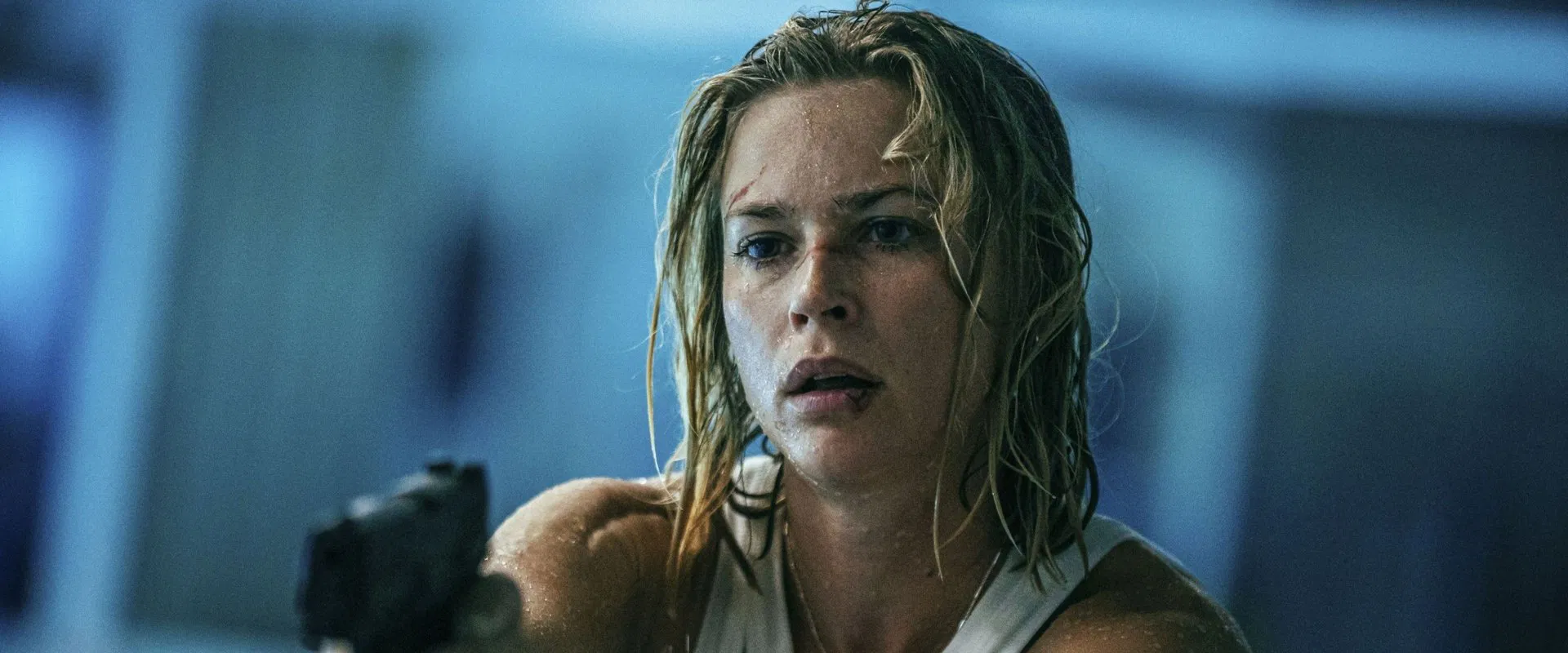The date on which Exterritorial rolled out on Netflix is not likely to be emblazoned on the calendars of film lovers, unless, perhaps, as a cautionary tale for aspiring directors on how a minor thrill premise can be spun into an inextricable web of misdirection, empty conspiracy, and conspicuous plot-fumbling. If Christian Zübert set out to make a woman-on-the-brink action yarn about the delirium of maternal loss and the cruel machinery of power, what we get instead is a would-be mystery that squanders its own slender promise, often wandering the consulate’s echoing corridors with as little purpose (and with as much head-scratching immunity to security) as its protagonist.
The core of the story, a haunted Special Forces veteran, Sara Wulf (Jeanne Goursaud, sensitive yet never allowed a real inner life), has her son vanish inside the US Consulate, should be both simple and shattering. It wants to gnaw at the primal: the fear of not being believed, the trauma of war seeping like poisoned groundwater into motherhood. But the film can never bring itself to focus on the one universal: a missing child is terror enough. Instead, Zübert’s narrative can’t keep its hands out of the Overstuffed Box of Motive, piling on drug smuggling, CIA refugees, Talibanic schemes, video manipulation, and the sort of technology that would make even a Marvel villain raise an eyebrow.
And so, we get video footage edited with magician’s sleight-of-hand, Kynch (Dougray Scott, barely dialing in the menace) scrubbing a child out of reality, the plot creaking with all the plausibility of a daytime soap. We are asked to swallow that established soldiers can hack convincing security tapes with Photoshop bravado, and worse, that none of this ultimately matters: the core mystery, “Is her son real?”, is dangled but then blandly dissolved, as if Zübert got bored of his own conceit and pinwheeled to the next.
But perhaps the most unintentionally comic moment comes when our sardonic attention is drawn to that fateful hand-off of a gym bag in a corridor, a blackly comic suggestion that little Josh might have been chopped up and stowed between polo shirts and protein powder. You needn’t worry: the film’s imagination doesn’t run that far. It prefers the laziest explanation, drug smuggling, and paints the consulate staff as so laughably incompetent (or complicit) it’s a wonder any government paperwork ever gets filed. I found myself musing, how many bureaucratic ruffians lurk in forgotten government corridors, botching their day jobs with B-movie glee?
Characters pop up with motivations barely sketched, a spare word for Donovan, whose alliance with Kynch is presented less as a twist than an afterthought. His flight from the action in the finale, once the plot has cause to expose him, is less the fall of a villain than the ignoble retreat of a character no one quite finished writing. Equally ghostly is Lera Abova’s Kira, whose “development” is so transparently sequel-bait you can almost hear the producers sharpening their elevator pitch for “Exterritorial 2: This Time It’s Personal.”
But credit where it is due, Keystone Cops-level security aside, some of the action is staged with muscle, if not grace. There’s effort in the long takes and the fight choreography, though at times you can spot the seams in the dueling (and not just on Jeanne’s military-issue wardrobe). And despite everything, Jeanne Goursaud shows a flicker of real screen presence somewhere beneath the script’s deadweight. If the film’s only legacy is an audition reel for her further action stardom, we might consider it a minor service.
In the end, what lingers isn’t the echo of gunfire or the flicker of danger, but the nagging thought of wasted opportunity, a nagging amplified every time the film gestures toward something deeper and just as quickly recoils from it. Exterritorial wanted to wrench our guts, to thrill and disturb, but its conspiracy is only skin deep, its catharsis a mirage. You watch scenes that might have been bruising, the mother’s ordeal, the betrayals, the flickers of raw panic, dulled by misjudged priorities and the director’s faint-heartedness.
It leaves one pondering the perpetual missed connection between story and execution, between promise and fulfillment; and like Sara Wulf herself, we are left searching for something precious that has, frustratingly, never really arrived.


